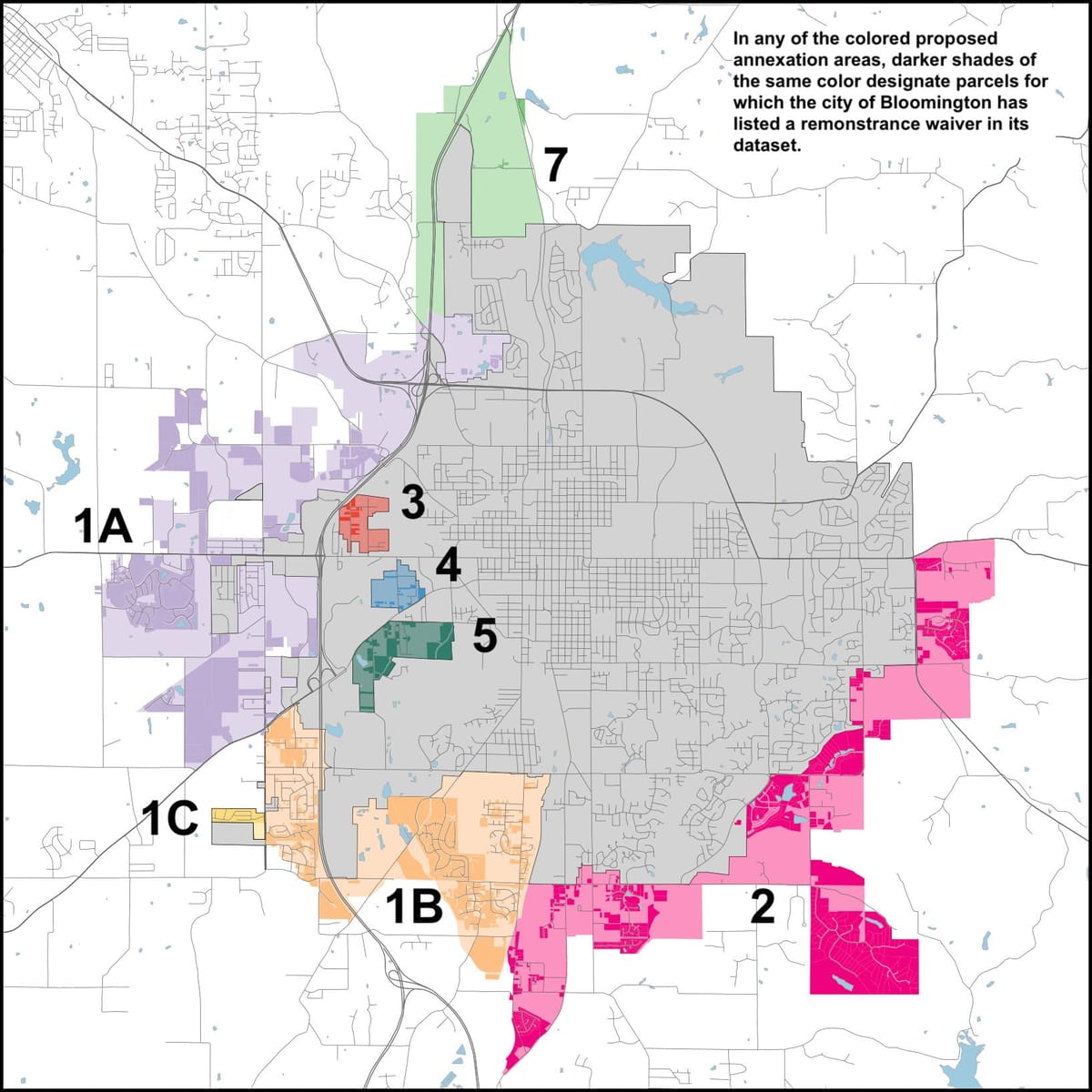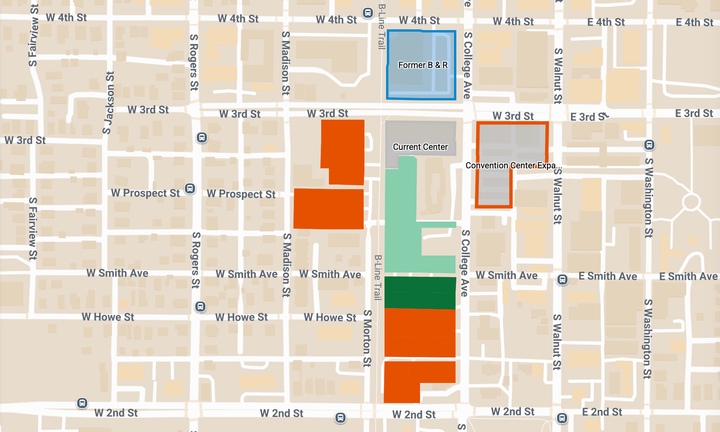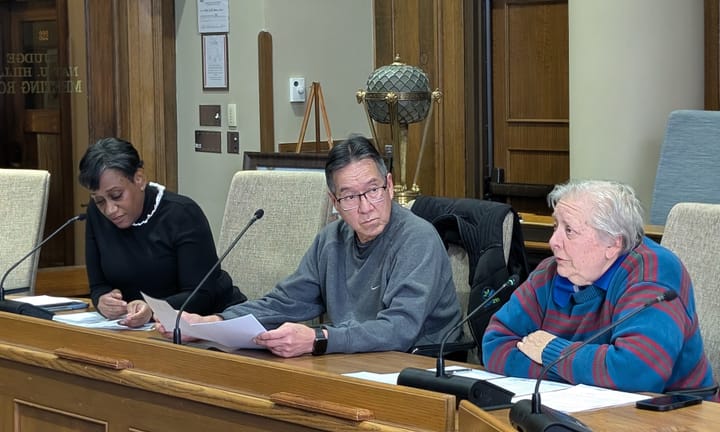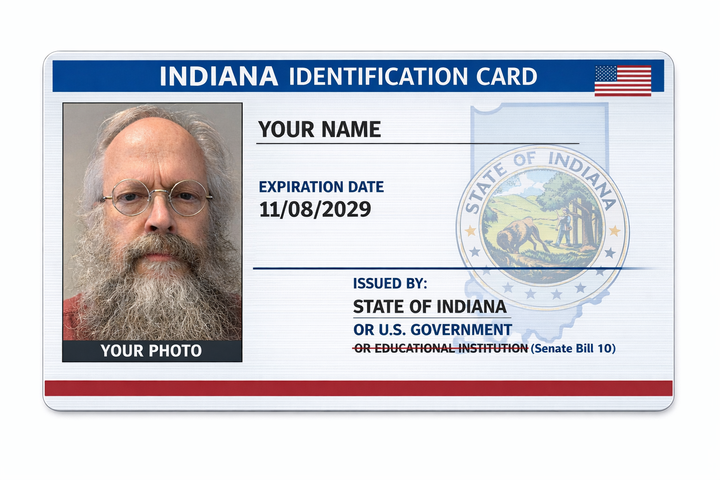Bloomington annexation update: More briefs filed as cases grind forward

April has to count as a busy month of court filings in Bloomington's two main annexation cases, even if no decisions have been handed down. Any decisions in either case likely several months away.
In the constitutional case, which involves the status of a 2019 law, the city followed through in early April on what it said it would do, and filed a petition to transfer the case to the Indiana Supreme Court. That's after the Court of Appeals handed down a unanimous opinion on Feb. 18 upholding the constitutionality of the 2019 law.
In the trial on the merits of annexation in Area 1A and Area 1B, Bloomington filed a reply to the response from remonstrators to the city's appeal brief. The city is appealing the ruling of special judge Nathan Nikirk, who ruled against the city of Bloomington in August of 2024.
But that's not all that happened by way of filings.
Timeline Snippet
- 2025-04-25 Trial on the Merits. Bloomington files a motion that the Court of Appeals hold oral arguments. [copy of motion]
- 2025-04-24 Constitutional question. State of Indiana files a response to Bloomington's motion to transfer the case to the Indiana Supreme Court. [copy of state's response]
- 2025-04-18 Trial on the Merits. Bloomington files reply brief to remonstrators' initial brief. [copy of Bloomington's reply brief]
- 2025-04-08 Constitutional question. Accelerate Indiana Municipalities (AIM) and Indiana Municipal Lawyers Association file amicus curia briefs [copy of amicus curiae briefs]
- 2025-04-04 Constitutional Question. Bloomington files its petition to transfer the case to the Indiana Supreme Court. [copy of Bloomington's petition]
Constitutional case
In the constitutional case, the city's petition to transfer the case to the Indiana Supreme Court got a response from the State of Indiana, which is arguing the case, given that it involves a question of constitutional law. In addition, Accelerate Indiana Municipalities (AIM) and the Indiana Municipal Lawyers Association filed amicus curia briefs, weighing in for Bloomington's position.
The legal controversy in the constitutional case involves the status of a 2019 law, passed by the state legislature, which voided certain waivers of a property owner's right to remonstrate against annexation. Remonstrance, the act of property owners formally opposing annexation, played a crucial role in Bloomington's annexation attempts.
The remonstration waivers were signed by many property owners in exchange for a city sewer connection. The bargain struck by property owners, inherited by subsequent owners of the land, was this: They got the ability to purchase sewer service from city of Bloomington utilities, in exchange for not remonstrating against a future annexation of their property into the city.
Based on its constitutional claim, Bloomington argued that the waivers were still valid despite the 2019 law. And if the waivers were still valid, then many remonstrance signatures were not valid due to the waivers.
In affirming the lower court's ruling, the Court of Appeals held that Bloomington, as a municipality, lacks enforceable rights under the contract clauses of the federal or state constitutions, to challenge the 2019 law as an impairment of its contracts with landowners.
The first question the Indiana Supreme Court will answer is whether to hear the case at all, which could take a few months. If the answer is no, that would also be the final answer to Bloomington on its attempted annexation for five of the seven areas. If the court decides to take on the case, that will mean another few months until an oral argument is scheduled and then a few more months until a decision is rendered. That could mean a decision comes as early as summer this year or not until sometime in the first part of 2026.
Trial on the merits
The case involves the merits of annexation in those two areas, not the constitutional question that has been raised for the other five areas that Bloomington wants to make a part of the city.
For Area 1A and Area 1B, remonstrators collected enough signatures from property owners to force a judicial review, but not enough to stop annexation outright.
The basic arguments in the briefs didn't offer any surprises. Bloomington says that the trial court made a mistake by not allowing the annexation of adjacent urban areas, because the territory is highly developed and already benefits from Bloomington's services. The remonstrators say that the trial court was right in deciding that Bloomington did not satisfy the legal requirements for annexation.
The city's reply, which has now been filed, digs into the meaning of urban character in the context of annexation law, and contends that the precedents established in other cases don't require the kind of narrow interpretation that the remonstrators, and the lower court, relied on to conclude the standards in the statute were not met.
Bloomington has also filed a motion for the court to hear oral arguments in the case, which is pretty standard. It could take a few months for the oral arguments to be scheduled and another few months after that for a decision to be made. But it would not be surprising to see the Court of Appeals wrap things up by the end of 2025.




Comments ()